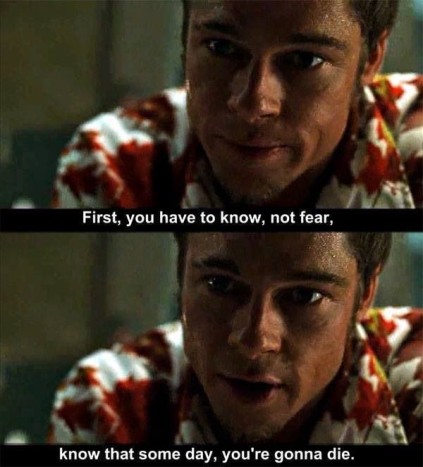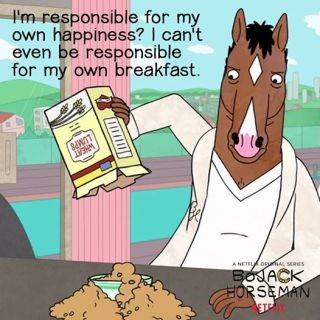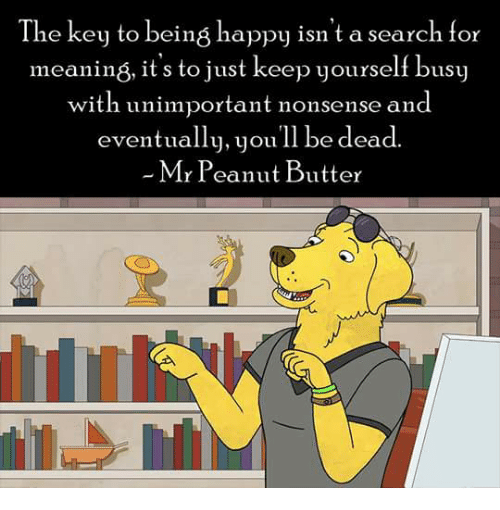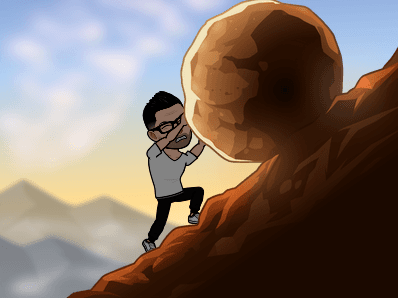In studying for my coaching course I have been introduced to existentialism. I have found the theories and ideas around existentialism fascinating which I why I wanted to reflect on them here. As I have learned more, I have realised that many of my favourite TV shows and films have strong existentialist themes including Bojack Horseman, Rick and Morty and Fight Club. I think there are a number of reasons why I am particularly interested in existentialism at the moment including my own mid-life, reflecting on the direction my career has taken and the decreasing health of my father. I am interested in what some would see as the darker aspects of existentialism , including the acceptance of our own mortality, and using that as a driving force to make the most of life.

Much of the existentialist theories I have researched have focused on the importance of being authentic to yourself, rather than being happy. There are several definitions of authenticity, but for me it is about taking responsibility for the way you live your life according to your values, beliefs and passions.

Taking responsibility for your own choices is a key part of existentialism. But sometimes choice can be overwhelming, even paralysing. Buridan’s ass is a tale of a donkey who was stuck between two bails of hay, but could not choose which one to eat, so he starved. This summerizes the paralasis of choice. From an existentialist perspective, it is often not important which choice to make, as long as you make a choice and are committed to it. Whichever choice you make will have conciquences good and bad so you may as well pick one. There is also the theory that whatever we choose or do or say, is so unimportant in the grand scheme of things that we may as well just commit fully to doing something.

In greek mythology Sisyphus was condemned by the gods to roll a bolder up a hill every day for eternity. The existentialist Camus related this to the absurdity of having to do futile work everyday, but the key is to learn to commit to the task and embrace the absurdity of it. “The struggle itself […] is enough to fill a man’s heart. One must imagine Sisyphus happy”.

From a coaching perspective there are a number key things I have taken from existentialism including; focusing on authenticity, drilling down into why someone is doing something or feeling a particular way as well as recognising the importance and responsibility we have that comes with the freedom we have over our own lives


